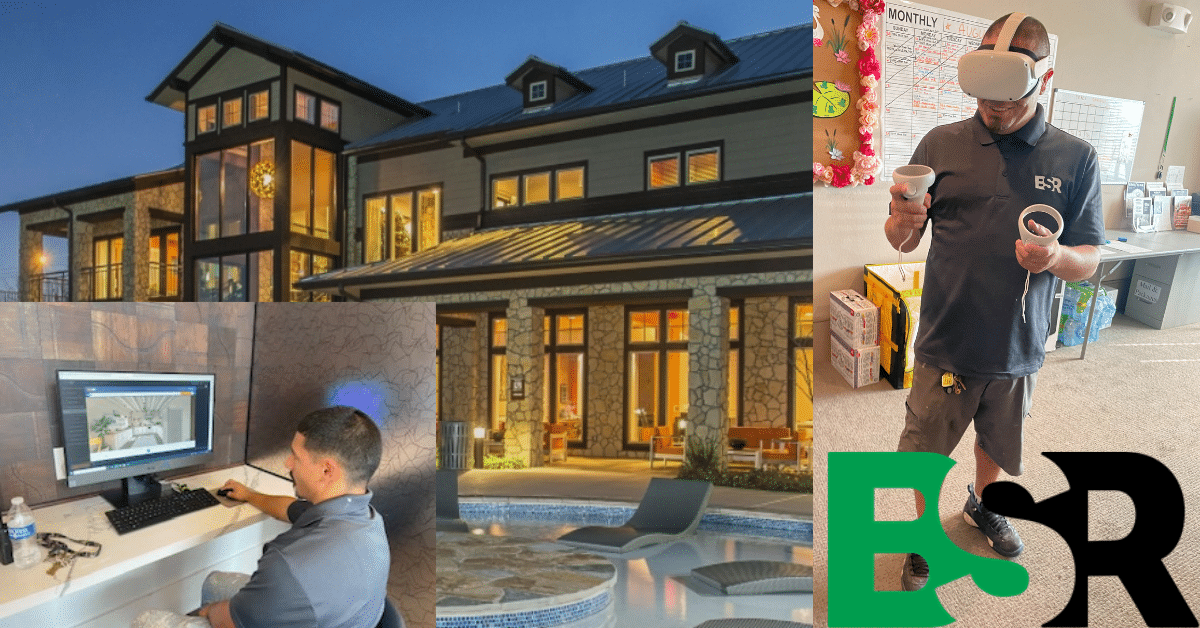BSR REIT is a leading owner and operator of 28 multi-family communities in the Sunbelt region of the United States. Recognizing that their people are their greatest asset, BSR prioritizes providing training and development opportunities for all team members.
Jennifer Gulledge is the Training Director at BSR, and below, she shares her journey of implementing Interplay into their maintenance training program to gain technician adoption and transform their approach to technical career training.
It’s All About Problem-Solving
My background is in operations. I was onsite for ten years and a Regional Manager for six before I ever set foot in the corporate environment. Coming from all that, I learned to become very solution-minded. A big focus of my job is problem-solving and trying to figure out how to make things work better, and our maintenance training program was something I wanted to optimize.
Here’s your Login. Go Learn.
In 2022 we started using Interplay. Initially, we started by just giving everyone a login and letting them go in willy-nilly at their own pace. However, we quickly realized that strategy wasn’t working out too well.
We were so focused on enrolling everyone in the training that we kept running into the same problem. I would get people enrolled, but then they wouldn’t log in. Or, they would log in sporadically and train for an hour or two before abandoning it again. Overall, the usage was inconsistent, and I just kept thinking to myself; they will never finish unless they’re given direction and expectations.
The Pivot–The Skills-Based Training Program
We needed to regroup and develop a thoughtful learning plan with clear pathways, whether by skill, trade, or position and hold our learners accountable.
We decided to reimagine Interplay as not just a training platform but a standalone targeted development plan. Instead of just giving everyone a training login and wishing them luck, we created skills-based training paths to serve as development plans for our people.
The catch is they would have to apply to the training.
At the beginning of the year, we conducted a think tank, where we went out to all the regions we’re in and met with our managers and service managers to show them the learning plans and opt-in application form we developed.
We had them think about the people on their team and who could benefit from this program. The new application was designed to allow our service leaders to have a dialogue directly with their team about where they are in their journey and where they want to grow.
Was it on appliances, or is it more HVAC? Or do they generally want a path to be promoted? Knowing the answers to these questions, we could target the learning path they need more specifically.
Opting-In: The Application
Anyone can enroll in the program. All they have to do is fill out the form, and we sign them up.
We include a section for previous industry experience, their current position, and topics or roles of interest. Then, they can select what suits them best from the learning and competency paths. It’s basically Interplay’s catalog but a condensed version they can review and self-select.
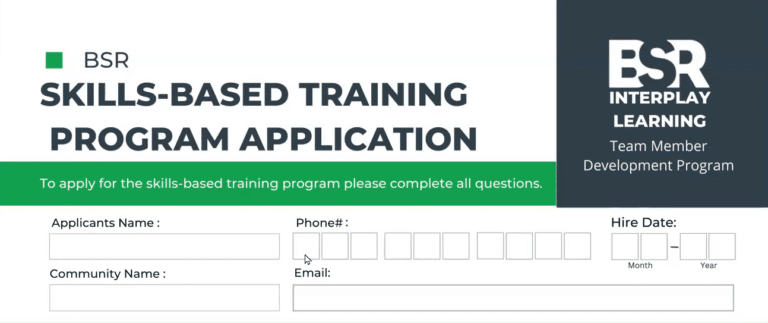
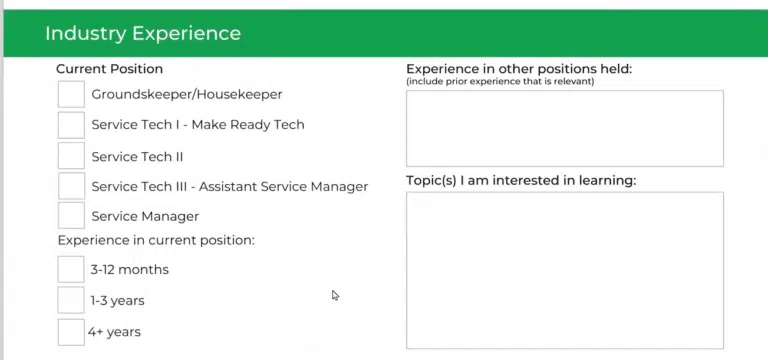
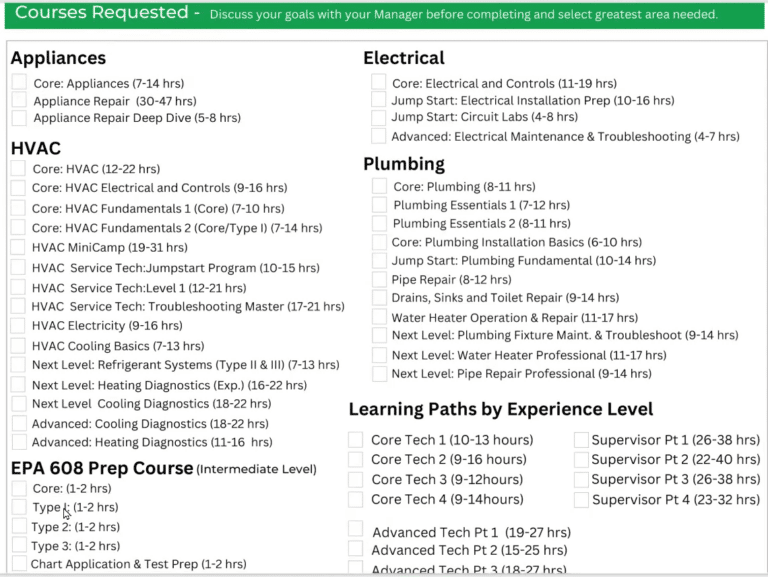
There’s one key section on here that’s tiny but mighty.
I get them to write down what day of the week they will train, what time, and where they will do it. Then, I have a place for them to acknowledge that they could get removed from the program if they don’t make good on their commitment. They sign it, their manager signs it, and they send it to us.
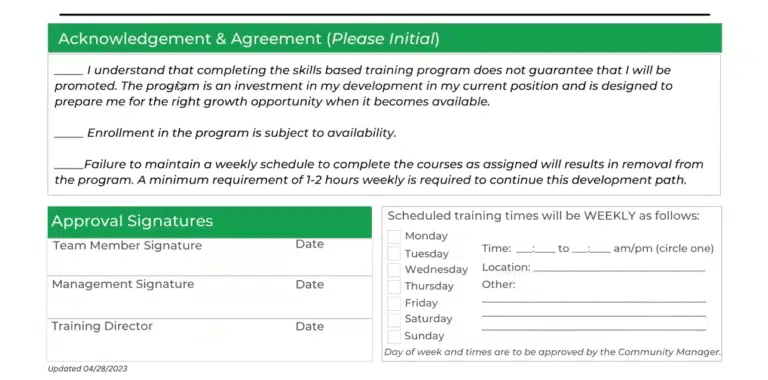
Encouraging Accountability
We have found that if you don’t give employees a defined training day and time, their attention will be pulled in another direction. And we tell our managers, “This is a fire, flood, or blood situation.” They cannot skip this. That’s how they have to treat it because it’s important. It’s important to their development. If you treat this flippantly, so will they.
This little section on the form gives us much more control over managing and helping support our leaders and people working in the field. If we notice training isn’t getting done, we can go back and say, “Hey, we agreed on this day at this time, and we put this plan together for a reason. Let’s come back to that and start again.”
It’s different than the standard model of how training works in many other organizations, but now, with opt-ins and timelines, people can take control of their careers and take training more seriously.
The Results
Career progression does not happen overnight. We have to be intentional about creating opportunities and encouraging and facilitating that opportunity. It’s one thing to say we want you to grow here; it’s another to walk your talk.
Our service managers are playing such a key role in all this too. When talking about talent development, you have to get more granular and personalize training to the individual to maximize the impact on their growth and development.
While it’s more management on our side, I think the result is much better and consistent. The opt-in process contributes to a learning culture where not signing up for training and focusing on your growth means falling behind your peers, who will be looked at more favorably for promotions and advancements.
This pivot was necessary on my end for my sanity too. I can now manage people easier and pull reports on where everyone is progressing or falling short.
I’m here to support my managers and team members in any way I can, and having reporting and some level of accountability that they all buy into has just been a game changer. From how we managed it in the first six months to today is night and day. The engagement of team members, their points, and how quickly they’re progressing speaks for itself.
Attracting the Younger Generations
We have had some real success stories with Interplay, and we find it resonating well with the younger generations.
The last time I looked, one young employee of ours, Steven Salinas, had over 6,000 points!
He started as a Groundskeeper and has worked his way up to a Make-Ready Tech 1. He’s now 85% through his Service Tech 2 learning path while working towards his EPA 608 and will be ready to take the exam soon.
His manager has also been working with him directly and showing him many hands-on things. Interplay is a good marrying of that hands-on in the field with classroom learning and has been very helpful in his career progression process.
Glenn Ortiz is another one of our go-getters. He completed the HVAC courses, earned his EPA, and was promoted from Service Tech to Assistant Service Manager.
Young people are prime candidates for this type of learning. They are used to doing online learning in school, are familiar with how it works, and can go right into this to learn a skilled trade.
Plus, post-secondary school is not for everyone. They could try school, but they’ll pay for it. Our company will pay for this training for you; you just have to do the work. You get a job, earn while learning, and get benefits. It’s a win. And all the while, we can back-fill those positions where experienced service team members are retiring from our business.
If we don’t fill those spots, we will be hurting. We’re already hurting, but it will be harder to attract the younger generation without innovative technology. That’s why I’m super excited about Interplay and being able to offer that to our teams; it is part of the solution to an industry-wide problem.
Inclusivity and Growth
Another benefit of Interplay has been the ability to serve and expand our talent pool. With at least 80% or more of our core market in Texas and nearly 50% of our workforce being of Hispanic or Latin origin, we desperately needed bilingual courses. While many employees are bilingual, we have locations with team members and applicants with limited English.
Interplay’s availability in multiple languages has eased the hiring and learning process for non-English speakers. This inclusivity is vital for our market and ensures every team member has equal access to growth opportunities.
Future Outlook
I tell anyone who is considering going into this program that this is the fast track.
If you want to grow fast, this is your accelerated learning opportunity. Otherwise, you’ll be on-site for much longer, figuring it out as you go, one Youtube video at a time. You’re just not going to have the foundations you need to understand how things work.
Implementing Interplay has been about getting people up to speed and training faster, quicker, and with greater understanding and more knowledge.
We have our development plans all done for the rest of the year. So now it’s just a continuation of what we’ve already planned. Our existing team members are all onboarded, and now it will be about focusing on the new hires.
We want to ensure that we’re circling back every 90 days to keep them on track in their learning and get management on the same page. We don’t want to lose anyone who could benefit from enrolling in this program, so we’re ensuring their personal development growth is scheduled for the remainder of the year.
And for me, I’ll keep our content fresh and updated based on how quickly Interplay keeps rolling out new courses!
Interplay is a big solution to an industry-wide problem. We certainly have fantastic field trainers and people who are incredibly knowledgeable in their craft, but they just can’t be everywhere at once.
The option to marry Interplay with in-person training is just the best of both worlds. And thankfully, I have a wonderful support team here and am part of an organization that’s bought into how we’re approaching things with Interplay. Not only are they financially behind the investment, but they’ve bought into the philosophy that education is the key to improving how we operate and do business.
 Jennifer Gulledge
Jennifer Gulledge
Director of Training, BSR REIT
Jennifer Gulledge is the Director of Training with BSR REIT and has over 25 years of experience in the multi-family industry. She began her property management career as a Leasing Professional and worked 16 years in operations before creating BSR’s training program. Jennifer is most proud of her work with their succession program and her dedication to creating custom development plans. She is a member of the NAA, IREM, and the Association for Talent Development and holds industry designations, including CAPS, CAM, and ARM, and has her Arkansas Real Estate License.

